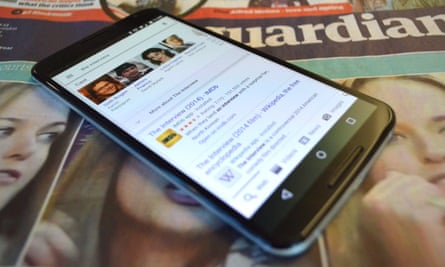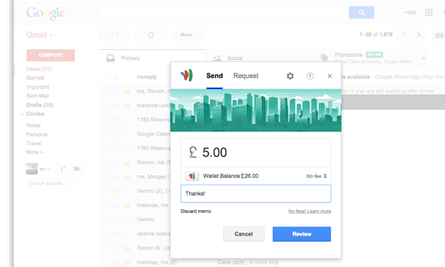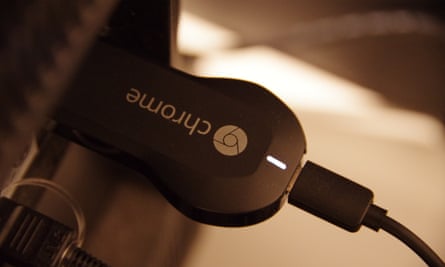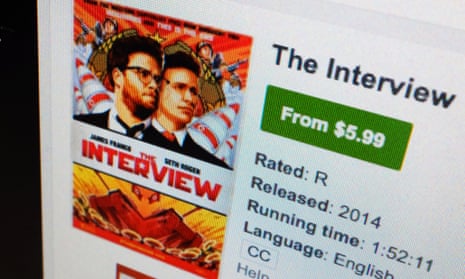Google isn’t printing money quite as fast as it used to, missing revenue expectations, but the company revealed that people really like watching adverts, that Glass is taking a strategic “reset” and you can now send money via Gmail in the UK.
Cast in the light of $4.76bn (£3.16bn) in fourth-quarter profits, up nearly 30% year-on-year, missing Wall Street expectations doesn’t seem so bad. Google blamed the strength of the dollar for a lot of it, saying revenues would have been $541m greater if the exchange rate had been more favourable.
1. Google Glass is having a strategic ‘reset’

“Our projects start with small dedicated teams that are given clear milestones to hit before they can get further investments. And in cases where we achieve success against our milestones, we expand our investments,” said Patrick Pichette Google’s chief financial officer, citing Google Fiber as one recent example of this.
But Glass? Not so much. “In other cases, when the teams aren’t able to clear hurdles, but we think there are still a lot of promise, we might ask them to take a pause and take the time to reset their strategies, as we recently did in the case of Glass,” he said.
Will it return as a viable consumer product? Only time will tell.
2. We see Facebook’s 1bn views and raise you 1 billion viewers

Facebook was trumpeting its video growth and hitting the 1bn daily video views milestone. Is Facebook a threat to Google’s YouTube? Not yet…
“Everyday people watch hundreds of millions of hours of video on YouTube, generating billions of views,” said Omid Kordestani Google’s interim chief business officer. “Watch time is up 50% year-over-year.”
3. People are making money, probably

Growth and 1 billion monthly viewers is all very well, but are people making money from YouTube beyond the PewDiePies of this world?
“We continue to invest in our YouTube Partners and Partner revenue has increased by more than 50% year-over-year. We are seeing great momentum in mobile advertising on YouTube. Mobile revenue on YouTube is up more than 100% year-over-year,” said Kordestani.
YouTube’s success in the face of competition from Amazon’s Twitch and Facebook’s integrated video will lie with attracting and keeping the new breed of video stars.
4. People really like watching adverts
The Super Bowl is coming. But it’s seemingly not about the sport, it’s all about the ads and even teasers of ads.
Nearly 70 ads or “teasers” for the Super Bowl have been posted on YouTube – even technology sites like the Verge has gotten in on the act. What’s more, Kordestani explained that they’ve been watched more than 44m times already, because people seemingly really like watching ads.
5. Google claimed credit for The Interview’s success

“In December, we partnered with Sony to digitally release the interview,” said Kordestani. “It has been publicly reported that the film generated over $15m in its first weekend, and that Google Play and YouTube drove the majority of those sales.”
No mention of North Korea, the hack or the amazing level of hype surrounding what critics have called “tasteless but amusing” film all about “butts”.
6. ‘Mobile is now a behaviour, not a device’

Technology companies seemed to have finally cottoned onto the fact that people use whichever device is most convenient. On the go that’s a smartphone, obviously, but in front a computer or TV it can still be a smartphone.
“Mobile is now a behaviour, not a device,” said Kordestani. “People are using screens interchangeably and simultaneously throughout the day. And we really think about the user and the context rather than a particular form factor or device.”
Search as a behaviour is well ingrained in the public consciousness, so why does data have to be siloed in apps? Searching for information doesn’t have to default to the web.
“15% of signed-in users’ searches on Android now return deep links to apps,” said Kordestani. “We have opened up app indexing to all Android developers, so their apps can appear in searches, also linking directly to the right content in the apps.”
7. People are buying more through their smartphones

Google Shopping traffic on mobile devices nearly doubled in the last quarter of 2014, compared to the same period in 2013.
“On payments, the goal is really to remove all the friction that one encounters now in the shopping experience,” said Kordestani. “What we’re really working on here is [to] move beyond just tap and pay and have a full functional payment system... we really are focused on building a rich offering here to make it easier to shop and pay and remove the friction.”
Mobile payments and shopping is the new battle ground, with Amazon, Apple, PayPal and Google all fighting for their slice of a potentially lucrative market.
8. Sending money via email

At the same time as pushing mobile shopping and payments, Google is now getting into the money transfer game in the UK.
Gmail users in the UK can now send money via email, if they trust Google with their bank details through Google Wallet. All they need to do is attach money from Google Wallet to the email and fire it to anyone, even if they don’t have a Gmail account – a feature the company launched in the US in 2013.
9. Chromecast

Google didn’t give any updated sales figures for its Chromecast device beyond saying that last week “we saw our one billionth tap of the ‘Cast’ button”, and that “usage per device” has increased by 60% since it launched, thanks to new apps and features.
With Google’s Nexus Player, Android TV coming built into Sony and other manufacturers’ televisions and video streaming services such as Wuaki bundling a Chromecast into their packages, the next billion casts will likely come a lot quicker.
Seven things we learned from Facebook’s latest financial results

Comments (…)
Sign in or create your Guardian account to join the discussion